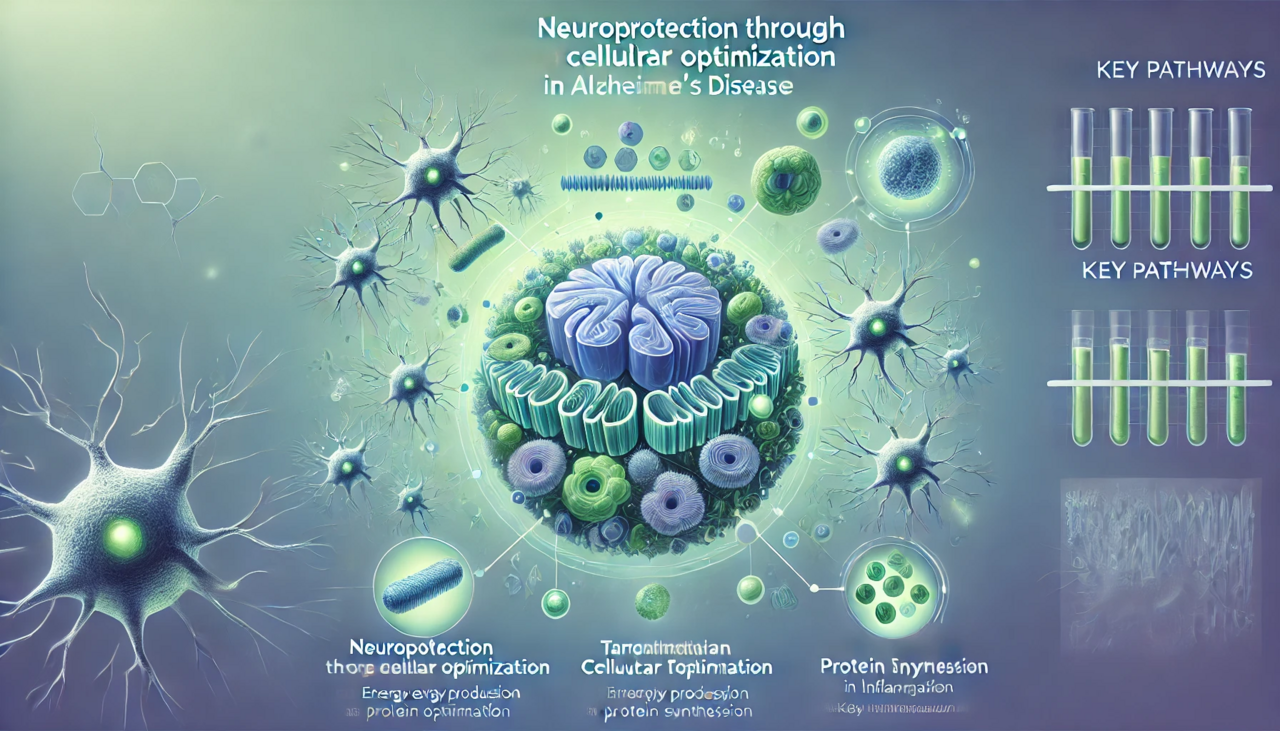Neuroprotection Through Cellular Optimization: The Transformative Potential of Mitochondrial and Ribosomal Therapies in AD
Published in Neuroscience, Cell & Molecular Biology, and General & Internal Medicine

Transform Alzheimer’s Disease Treatment?
Alzheimer’s Disease (AD) remains one of the most challenging neurodegenerative disorders, with no cure and limited treatments that only provide symptomatic relief. While amyloid-beta (Aβ) and tau-targeting therapies (e.g., anti-amyloid antibodies like Lecanemab and Aducanumab) have recently gained FDA approval, their effectiveness is modest, and they do not stop disease progression.
A new paradigm in AD research focuses on cellular metabolism and protein synthesis dysfunction, particularly in mitochondria and ribosomes. If these fundamental cellular processes are failing, can restoring them halt or reverse AD progression? Let’s explore the potential of mitochondrial and ribosomal therapies as game-changers in AD treatment.
- The Case for Mitochondrial Therapy in AD
Why Are Mitochondria Important in AD?
Mitochondria generate ATP, the energy currency of cells, and regulate oxidative stress, calcium homeostasis, and apoptosis. In AD, mitochondria are dysfunctional, leading to:
- Energy deficits in neurons, impairing synaptic plasticity and memory.
- Oxidative stress, damaging proteins, lipids, and DNA.
- Impaired mitophagy, allowing defective mitochondria to accumulate.
- T-cell exhaustion, reducing their ability to clear Aβ and control neuroinflammation.
Mitochondrial Therapies: Potential Game-Changers?
🔬 Approaches to Restore Mitochondrial Function:
-
Boosting Mitochondrial Biogenesis
- NAD+ precursors (Nicotinamide Riboside, NMN, NR) → Activate PGC-1α, a master regulator of mitochondrial growth (Gong et al., 2021).
- Resveratrol & Exercise → Naturally enhance mitochondrial function.
-
Enhancing Mitophagy (Mitochondrial Quality Control)
- Urolithin A → Stimulates mitophagy, clearing damaged mitochondria.
- Rapamycin (mTOR inhibitor) → Promotes autophagy, reducing oxidative damage (Singh et al., 2019).
-
Reducing Mitochondrial Oxidative Stress
- Coenzyme Q10 (CoQ10), MitoQ, SkQ1 → Mitochondria-targeted antioxidants that reduce neuronal oxidative damage.
- Sulforaphane & Melatonin → Activate Nrf2, an antioxidant defense pathway.
📌 Clinical Insights:
- A phase II trial (NCT03815916) found that NAD+ precursors improved cognitive function and mitochondrial biomarkers in early AD patients (Xiao et al., 2022).
- Urolithin A has shown promise in reducing mitochondrial dysfunction and neuroinflammation in preclinical AD models (Singh et al., 2019).
✅ Potential Impact: Mitochondrial therapies could delay AD onset, enhance energy metabolism, and improve immune cell function, making them an ideal early intervention strategy.
- The Role of Ribosomal Translation in AD
Why Is Protein Synthesis Impaired in AD?
In healthy brains, ribosomes synthesize proteins required for synaptic function, memory formation, and immune responses. In AD, however:
- eIF2α hyperphosphorylation shuts down protein synthesis.
- RNA-binding proteins (TDP-43, FMRP) are dysregulated, leading to unstable mRNA.
- Cytokine and immune receptor production decreases, impairing immune function.
Ribosomal Therapies: Can We Restore Translation?
🔬 Potential Strategies:
- Modulating eIF2α Pathway to Restore Translation
- ISRIB (Integrated Stress Response Inhibitor) → Blocks excessive eIF2α phosphorylation, reactivating protein synthesis (Ma et al., 2020).
- Trazodone & Dibenzoylmethane → FDA-approved drugs that correct translation defects in AD models (Halliday et al., 2019).
- Enhancing mTORC1 Activity for Immune Function
- Leucine & IGF-1 → Stimulate mTORC1, promoting translation and immune responses.
- Exercise & Nutrition → Naturally activate mTORC1, improving cognitive resilience.
📌 Clinical Insights:
- ISRIB restored memory function and protein synthesis in AD mouse models (Ma et al., 2020).
- Clinical trials are underway to assess ISRIB's potential in neurodegenerative diseases (NCT04444547).
✅ Potential Impact: Ribosomal therapies could restore synaptic function, enhance neuroimmune responses, and improve cognitive resilience, making them a critical intervention across all AD stages.
- Early vs. Late AD: Will These Therapies Work?
|
Targeted Pathway |
Early AD (MCI, Preclinical) |
Late AD (Severe Cognitive Decline) |
|
Mitochondrial Restoration (NAD+, PGC-1α activation) |
✅ Highly effective |
⚠ Limited effectiveness |
|
Mitophagy Boosters (Urolithin A, Rapamycin) |
✅ Enhances T-cell function |
⚠ Partial benefit |
|
Antioxidant Therapy (MitoQ, CoQ10, Sulforaphane) |
✅ Strong protection |
✅ Can slow oxidative damage |
|
eIF2α Modulation (ISRIB, Trazodone) |
✅ Restores protein synthesis |
⚠ Partial recovery of immune function |
|
mTORC1 Activation (Leucine, IGF-1, Exercise) |
✅ Improves immune function |
⚠ Limited benefit but may reduce inflammation |
|
Aβ Clearance by T-Cells |
✅ Enhanced clearance |
❌ Very limited clearance |
|
Cognitive Improvement |
✅ Possible delay in decline |
⚠ Symptom management only |
📌 Key Insight:
- Early-stage interventions (MCI stage) offer the best therapeutic window.
- Late-stage AD requires a combination of mitochondrial, ribosomal, and anti-inflammatory therapies.
- Are Mitochondrial & Ribosomal Therapies the Future of AD Treatment?
Why This Approach is Promising:
✅ Targets fundamental cellular processes (metabolism & protein synthesis), not just amyloid/tau.
✅ Can be combined with existing therapies (e.g., anti-amyloid, anti-tau drugs).
✅ Has broad applications beyond AD (e.g., Parkinson’s, ALS, aging-related cognitive decline).
Challenges & Future Research Needs:
⚠ Need more clinical trials to validate mitochondrial and translation-targeting drugs.
⚠ Biomarker-based approaches to personalize treatment timing and efficacy.
⚠ Combination therapy strategies to maximize neuroprotection.
- Conclusion: A Paradigm Shift in AD Treatment
Mitochondrial and ribosomal therapies represent a transformative approach in AD treatment by targeting core cellular dysfunctions instead of just toxic protein aggregates.
- Early interventions (e.g., NAD+, ISRIB, mitophagy enhancers) could delay AD onset and progression.
- Late-stage therapies (e.g., antioxidants, translation boosters, mTOR activators) could slow neurodegeneration and improve quality of life.
🚀 Could these therapies finally bring us closer to an AD cure? The future of Alzheimer’s research may not be just about removing plaques—but about restoring the cellular machinery that sustains life.
Please sign in or register for FREE
If you are a registered user on Research Communities by Springer Nature, please sign in